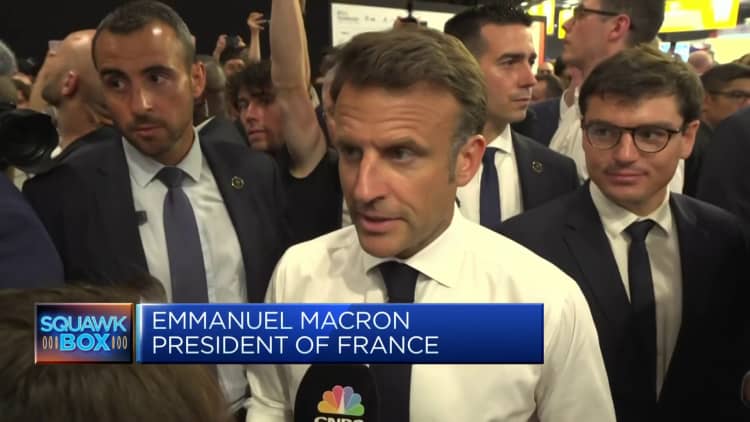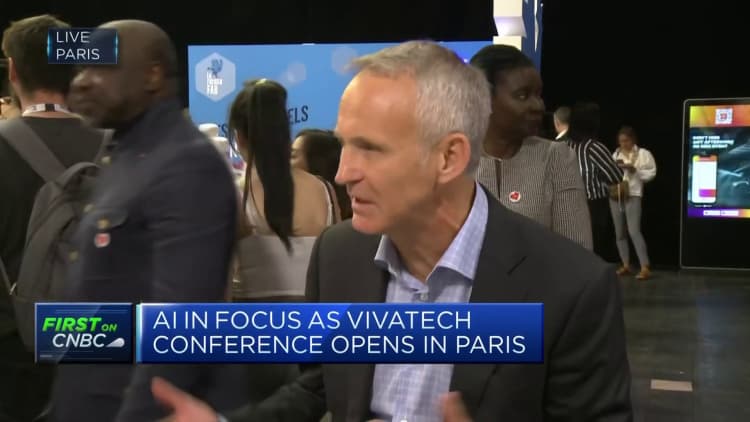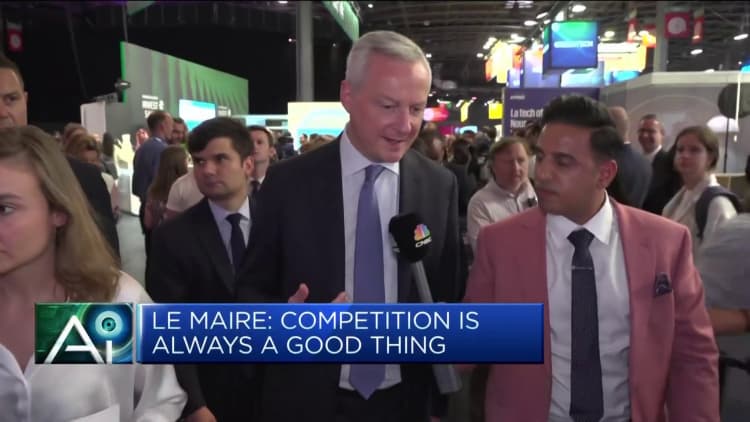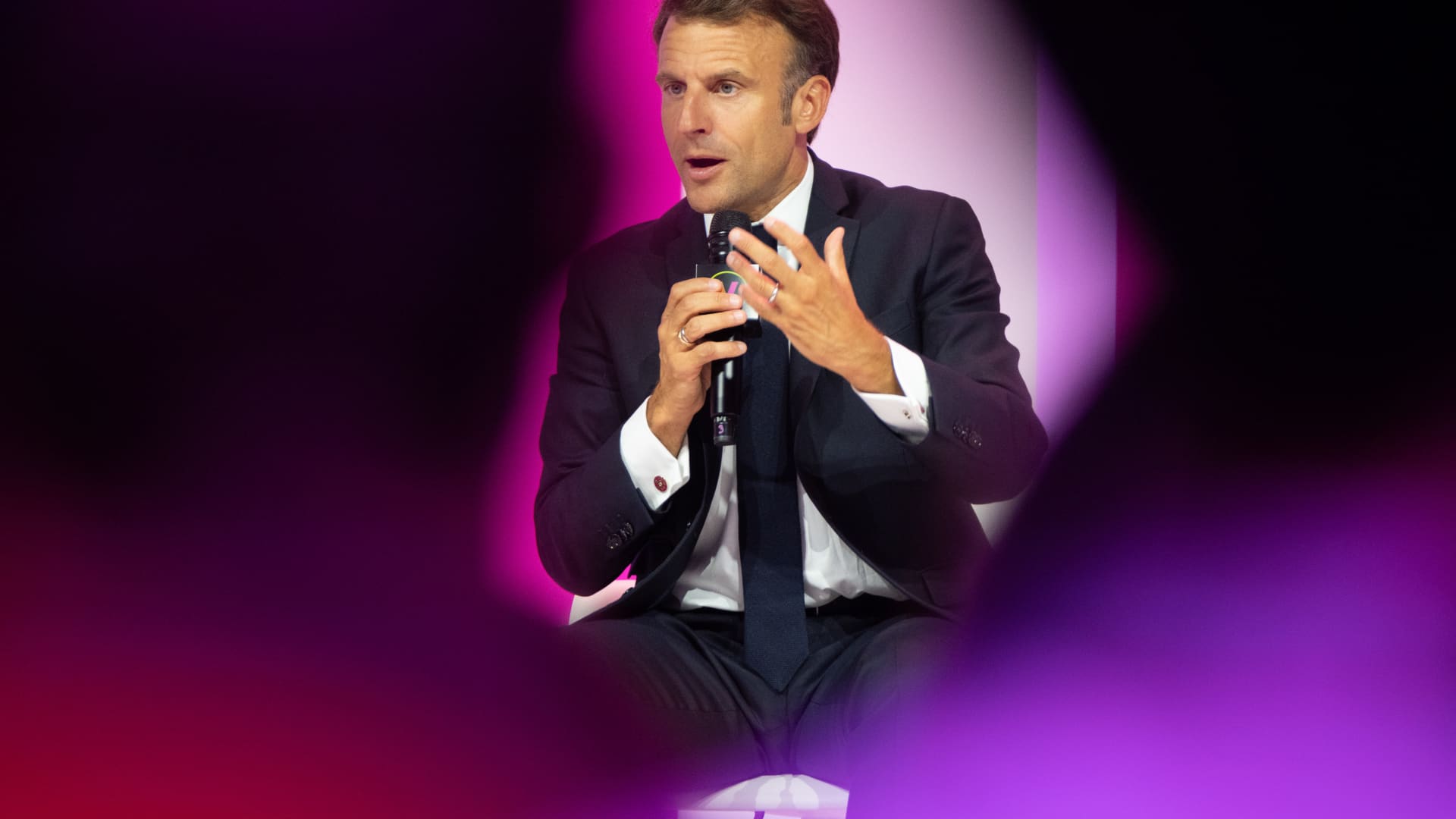
France’s top politicians have stated that they anticipate the emergence of global regulation on artificial intelligence by the end of this year. French President Emmanuel Macron expressed a desire to collaborate with the United States in establishing rules for this rapidly growing technology.
These comments come amidst the increasing interest in AI, fueled by the exponential growth of chatbot ChatGPT, and as governments worldwide discuss the need for regulation. However, there is currently no consensus on how AI should be managed and controlled, with different approaches being taken by the US, China, and the European Union. Establishing a global regulatory framework would be a significant accomplishment.
Despite being a member of the European Union, France aims to position itself as the European hub for AI development, as the EU moves forward with groundbreaking regulation.
Speaking at the VivaTech conference in Paris, Macron, Finance Minister Bruno Le Maire, and Digital Minister Jean-Noel Barrot expressed their support for global AI regulation. Macron stated, “I think we need a regulation and all the players, even the U.S. players, agree with that. I think we need a global regulation.”
Barrot added that some core principles for AI regulation in the G7 countries and like-minded nations would start to emerge by the end of the year.

The G7, which includes France, Germany, the United States, and the United Kingdom, has agreed to establish a working group to address AI-related issues. Macron believes that the G7 and the Organisation for Economic Co-operation and Development (OECD) with its 38 member countries can serve as a suitable platform for developing global regulations.
Why now?
French concerns over EU A.I. law
France’s call for global AI regulation coincides with the European Union’s progress in passing a significant law known as the EU AI Act. The European Parliament recently approved this groundbreaking law, which adopts a risk-based approach to regulating AI.
The latest changes to the law include stricter regulations on generative AI, the technology that powers ChatGPT, developed by OpenAI, enabling systems to generate images or respond to prompts in text form. The regulation now requires developers of generative AI systems to submit them for review before commercial release.
However, the law still requires approval from other EU bodies. France, known for its pro-regulation stance, has expressed concerns that the EU’s AI law may be overly restrictive.
Barrot stated, “My worry is that in recent weeks, the EU Parliament has taken a very strong stance on AI regulation, attempting to address too many issues simultaneously, using the AI Act as a solution.”
U.S. rivalry and partnership in focus
While the EU-level law undergoes the legislative process, France seeks to establish regulations on a global scale and views the United States as a key ally.
Finance Minister Bruno Le Maire emphasized the value of competition and the need for a comprehensive discussion with American authorities on the most effective methods of regulating AI. He stated, “Competition is always a good thing. So we have a very close cooperation with the U.S., but we also want to develop our own AI intelligence and companies.”

The United States has yet to establish a framework for regulating AI. However, American companies like OpenAI, the creator of ChatGPT, and chipmaker Nvidia are prominent leaders in the field.
Conversely, China, seen as a common technological rival by the EU and the U.S., has implemented laws focused on specific AI applications, such as “deepfakes” or computer-generated content.
What are the French expectations for regulation?
French policymakers shared their priorities for AI regulation.
Macron emphasized the importance of safety, unbiasedness, and non-discrimination in AI language models. He stated, “We want to be sure that this is safe, unbiased … that the language models we have are not biased and that what is forbidden in society is forbidden in this model. So we need some rules.”
There are concerns that large language models, like ChatGPT, which rely on extensive data training, may exhibit inherent biases based on the data used. Macron also emphasized the right of users to know if content they are viewing has been created by AI.
French politicians strive to strike a balance between protecting users and fostering innovation. Barrot expressed the need for regulation that ensures user protection and establishes trust, while
Denial of responsibility! VigourTimes is an automatic aggregator of Global media. In each content, the hyperlink to the primary source is specified. All trademarks belong to their rightful owners, and all materials to their authors. For any complaint, please reach us at – [email protected]. We will take necessary action within 24 hours.
Denial of responsibility! Vigour Times is an automatic aggregator of Global media. In each content, the hyperlink to the primary source is specified. All trademarks belong to their rightful owners, and all materials to their authors. For any complaint, please reach us at – [email protected]. We will take necessary action within 24 hours.


